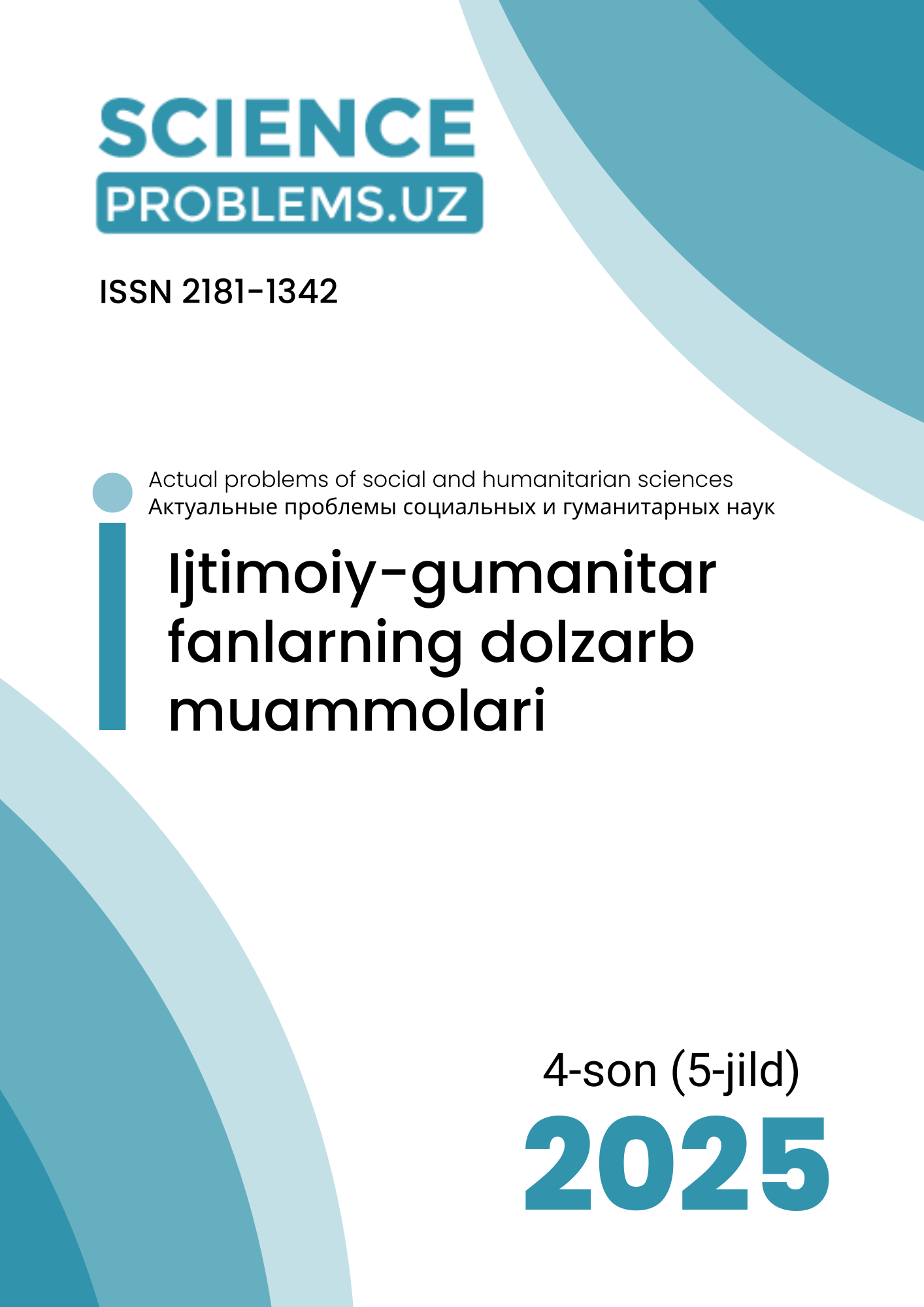PHILOSOPHICAL ANALYSIS OF MATERIAL AND SPIRITUAL FACTORS IN ENSURING FAMILY STABILITY
DOI:
https://doi.org/10.47390/SPR1342V5I4Y2025N25Keywords:
prosperous family, material stability, moral values, socio-philosophical analysis, economic well-being, sustainable development, family values, innovative transformation, digital revolution, social stability.Abstract
This article analyzes the theoretical and practical aspects of the concept of a prosperous family. Material and spiritual stability are considered as key factors in strengthening the family and advancing society. Special attention is given to the socio-philosophical aspects of family well-being, its connection with economic stability, and the role of moral values. Additionally, the factors influencing the level of family prosperity in the context of the digital revolution are examined.
References
1. Komilov, R. Z. R. (2023). MARRIAGE: AS AN OBJECT OF MORAL, RELIGIOUS, SCIENTIFIC RESEARCH.
2. Komilov, R. Z. (2023). YANGI O ‘ZBEKISTON MA’NAVIY QIYOFASI RIVOJIDA MILLIY NIKOH MUNOSABATLARINING AXLOQIY-ESTETIK MOHIYATI. Namangan davlat universiteti Ilmiy axborotnomasi, (10), 178-181.
3. Komilov Ro‘zi Rabiyevich, Salimova Marjona Abdumalikovna. (2024). OLIY TAʼLIM TIZIMIDA AMALGA OSHIRILGAN ISLOHOTLAR VA ULARNING SAMARADORLIGINI OSHIRISH YOʼLLARI. INTERNATIONAL JOURNAL OF SCIENCE AND TECHNOLOGY, 1(2), 22-26. https://doi.org/10.1808/29tvsc71
4. Rabiyevich, K. R. Z. (2024). REGULATORY AND LEGAL BASIS OF ADMINISTRATIVE ACTIVITY OF HIGHER EDUCATION INSTITUTIONS IN UZBEKISTAN. INTERNATIONAL JOURNAL OF SCIENCE AND TECHNOLOGY, 1(2), 165-170.
5. Komilov, R. Z. (2024). O’ZBЕK XALQI NIKОH MUNOSABATLARI GENEZISINING FALSAFIY TAHLILI. Ilm-fan va ta'lim, (7 (22)).








